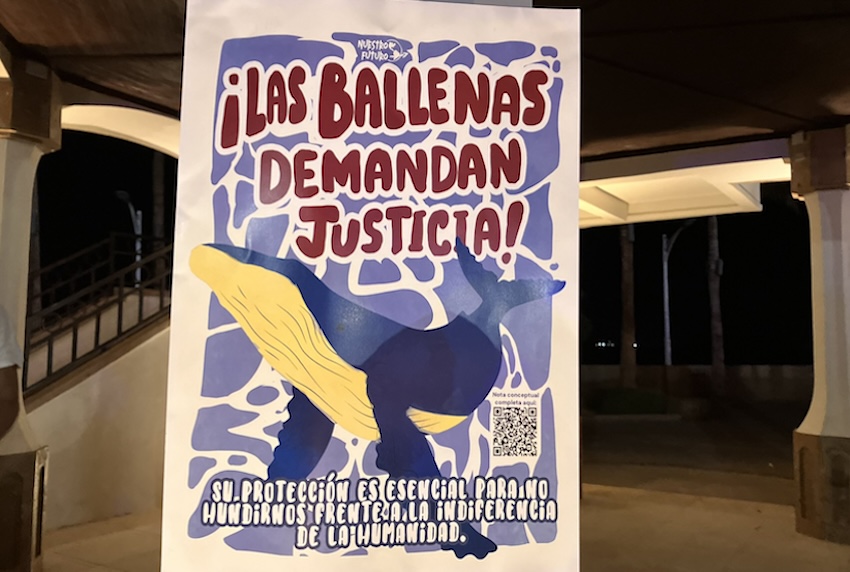A coalition of organizations has filed a potentially groundbreaking lawsuit on behalf of Gulf of California whales as deserving of legal protections equivalent to human rights.
The lawsuit — accepted by a district judge last week — seeks to have the Gulf of California declared “a critical habitat” in accordance with Mexico’s General Wildlife Law in order to conserve and protect the species that live there, as required by the Constitution and international treaties.

The litigation also seeks to halt the expansion of fossil gas megaprojects in the Gulf of California, also known as the “Aquarium of the World.”
The lawsuit — filed in District Courts in the state of Sonora and in Mexico City on Sept. 30 — hopes to pave the way for legal recognition of nature as a subject of rights.
The NGO Nuestro Futuro is managing the groundbreaking litigation on behalf of the whales and all marine mammals that inhabit, transit or reproduce in the Gulf of California.
Attorney Nora Cabrera said the lawsuit is based on Mexico’s constitutional obligations to conserve biodiversity as stated in Article 27. The litigation also cites Article 4, which refers to the right to a healthy environment — including for animals.
“Whales, due to their intrinsic value as beings, are demanding that the State take care of them and protect them from the expansion of gas projects in the Gulf of California,” Cabrera told the newspaper Milenio.
One immediate goal is to revoke “irregular” permits granted to the controversial US $30-billion Saguaro LNG Project located in Puerto Libertad, Sonora, without the benefit of environmental impact studies. The project would convert a former regasification plant into a liquefied natural gas plant whose production would be exported in large LNG tankers across the Gulf of California, threatening the UNESCO World Heritage site, according to the Natural Resources Defense Council.
92 gray whales have washed up dead in Baja California Sur, the worst die-off in decades
A similar case made its way through Mexican courts over the past two years as Maya human rights defenders sought protection for melipona bees in the Yucatán Peninsula
In November 2024, a district judge recognized the ecological and cultural value of the bees which have been cultivated by the Maya for centuries and, according to the newspaper El País, five months later another judge granted the bees the same legal representation that the whales have been granted. That case has not progressed further, however.
If successful, the whales’ lawsuit will set a historic precedent: species and ecosystems will be able to defend themselves in court to preserve their existence, which, Nuestro Futuro claims, will strengthen climate justice as well as human beings’ right to a healthy environment.
With reports from Animal Político, El País, W Radio and Milenio
